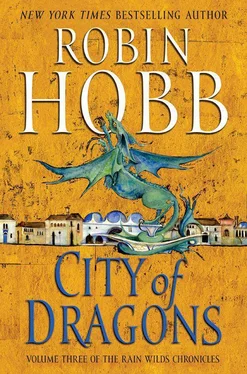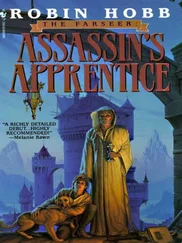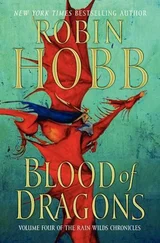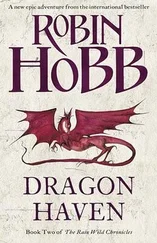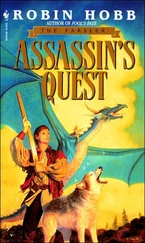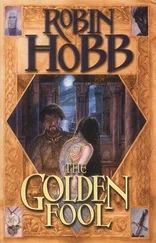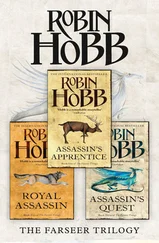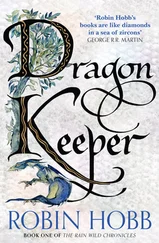Rapskal hefted the heavy metal items. “Not one I’d wear! Maybe something for a dragon.”
“Maybe,” Thymara agreed dubiously. Her stomach growled loudly. “I need food,” she observed and heard the irritability in her voice.
“Me, too. Let’s take the stuff we found and walk down to the river. Maybe we can find some edible plants to chew on or a fish or something.”
“Not likely,” she replied, but she had no better plan.
She felt like a thief as she used an Elderling gown for a sack and bundled the rest of their loot into it. She paused to pull on the leggings, and Rapskal chose a pair and did the same. All the others would be glad of any new garments, and she suspected that they’d be especially pleased with items as bright and sturdy as these. Dutifully, she gathered up her worn-out clothing and stuffed them in as well. All the keepers had learned not to throw anything away. Their resources were so few that any item that could be reused in any way was valued.
The dragon baths were empty of both dragons and water. The room remained warm and gently lit. It was a comfortable place. Thymara dreaded going back outside. But there was no help for it. They shouldered their burdens and walked out into the wintry day. The sky was clear and blue, the air cold on her face. The rest of her stayed warm. Light blessed them, and for a time they walked in silence. The Elderling shoes were like nothing she had ever worn. She looked down at them, wondering if she should have tried to put her old boots on over them. Her feet were warm and it was almost as if she were walking barefoot. She hoped she wouldn’t ruin them.
“It’s so good to have warm clothes,” Rapskal observed. Then he added pensively, “City feels different, doesn’t it? Awake.”
“It does,” she agreed and said no more because she could not precisely say what had changed. If she had not been so hungry, she would have wanted to do more exploring. But all she could think of right now was food, and their best opportunity for that was along the river’s edge.
“Things will be different for you now that Sintara can fly,” Rapskal offered.
She glanced at him in surprise and then followed his gaze. Blue wings in the distance over the foothills behind the city. Her dragon. In flight and hunting. She was silent, considering it, but Rapskal was not.
“She’ll be able to feed herself now, and that will get her growing, too. Heeby grew so much so fast when she could finally hunt all she wanted and eat all she wanted. And I think it was all the exercise, too. And now that they both know how to get to that hot water, well! She’s not going to be the same dragon at all. And you’re going to have a lot more time to do whatever you want to do.”
She tried to fit that idea into her mind. “It won’t be so different,” she suggested. “I’ll still hunt to help feed the other dragons and the keepers.”
“But Sintara’s not going to need you as much,” he pointed out. She glanced at him: How could such a casual observation seem so cruel?
“Probably,” she agreed morosely. Suddenly, it seemed an opportunity lost. The dragon had needed her, and Thymara had had months in which to win her over. Instead they had quarreled and chafed, ignored and snubbed and then insulted each other. And now Sintara had, in the space of one night, finally mastered flight and no longer needed her. They had never bonded, dragon and keeper, as some of the others had. And now they never would.
“Up! There goes Heeby. She’s diving on something. So she’ll kill it, eat it, and probably sleep for a bit before she comes back for us.”
Thymara watched the distant red silhouette dive, looked over her shoulder for Sintara’s blue wings, and saw nothing. So perhaps she had already killed and was eating. And she didn’t even have enough of a bond with her dragon to know.
They’d reached the riverside now. It could be a hazardous place. In its latest incarnation, the river had swung in close to the city, eating away at the old docks. Downstream, streets and buildings were undercut and eroding into the water. There were no shallows, and Thymara was leery of standing too close to the edge, for she could not tell what was sound and what was undercut. She followed Rapskal, and he led the way with comfortable familiarity. They reached a place where old pilings jutted out of the water. Here, the stone edge of the city had already collapsed into the icy water, creating a steep and rocky shore. “Wait here,” Rapskal instructed her, and she hunkered down to watch him. He clambered down and then moved carefully from outcropping to outcropping, sometimes pausing to gather something from the water’s edge into a sling of his sash. He glanced back at her once. “See if you can find some driftwood and build a fire,” he suggested.
She rose with a groan, doubting she’d have any luck. But by the time he came skipping back to shore, she’d piled up one decent log and an armload of twigs and branches. Rapskal had his fire-starting materials in his pouch around his neck and was only too happy to demonstrate his expertise. While he got the fire going, she poked through his catch. He’d gathered freshwater limpets and streamers of water weed and some bivalves she didn’t recognize. “Are you sure we can eat these?” she asked.
He shrugged. “I’ve eaten them before. I’m still alive.”
They steamed them on the heated paving stones right beside the fire and ate them as they opened. They were not delicious, but they were edible and that was all she required at this point. It was not a large meal, but it took the edge off her hunger. Afterward, they sat side by side next to the fire and watched the river. The Elderling gown kept her comfortably warm, and the sun sparkling on the water dazzled her eyes. Without quite meaning to, she was leaning up against Rapskal’s shoulder when he asked her, “What are you thinking about so quietly?”
And then the words popped out of her mouth. “What if I’m pregnant?”
He spoke confidently. “Girls don’t get pregnant the first time. Everyone knows that.”
“Girls DO get pregnant the first time, and only boys say that stupid thing about how it can’t happen the first time. Besides, what about the second, third, and fourth time last night?”
Despite the seriousness of her question, a smile threatened her face.
“Well.” He appeared to consider her words carefully. “If you are pregnant, then a fifth and a sixth time would do no harm. And if you aren’t, well, then you probably aren’t ripe right now, and a fifth and a sixth time wouldn’t get you with child.” He turned toward her, his eyes both merry and inviting.
She shook her head at him. How could he be so tempting and so annoying in the very same instant? “You can talk like that and make jokes about it,” she told him sourly. “You don’t have to wonder if something you did in a few minutes last night will change the entire course of your life. Change your whole world.”
When had he put his arm around her? He gathered her in tenderly, tucking her head under his chin. “No,” he said, in a voice more serious than she had ever heard him use. “I don’t have to wonder. I know that my whole world changed last night.” He pressed a kiss onto the top of her brow.
“I feel so useless.” Reyn sat down cross-legged on the deck beside Malta. Despite the darkness of his words and tone, he was smiling at her, captivated by the sight of his beautiful wife nursing his son.
She looked at him. “At least you can move about freely.”
“It’s safest for both of you if you stay here. And Leftrin doesn’t want me coming and going from the boat any more than is absolutely necessary. And he wants you and the baby to remain invisible.” He’d said the words before and he didn’t doubt that he’d say them again before they managed to depart. Logic did not always have a great deal of influence on Malta, especially when it did not agree with her preferences. “The other Chalcedean may very well be looking for you. And even if he isn’t, the word is out that a man was murdered in a bagnio last night. They are looking for his killer.”
Читать дальше
